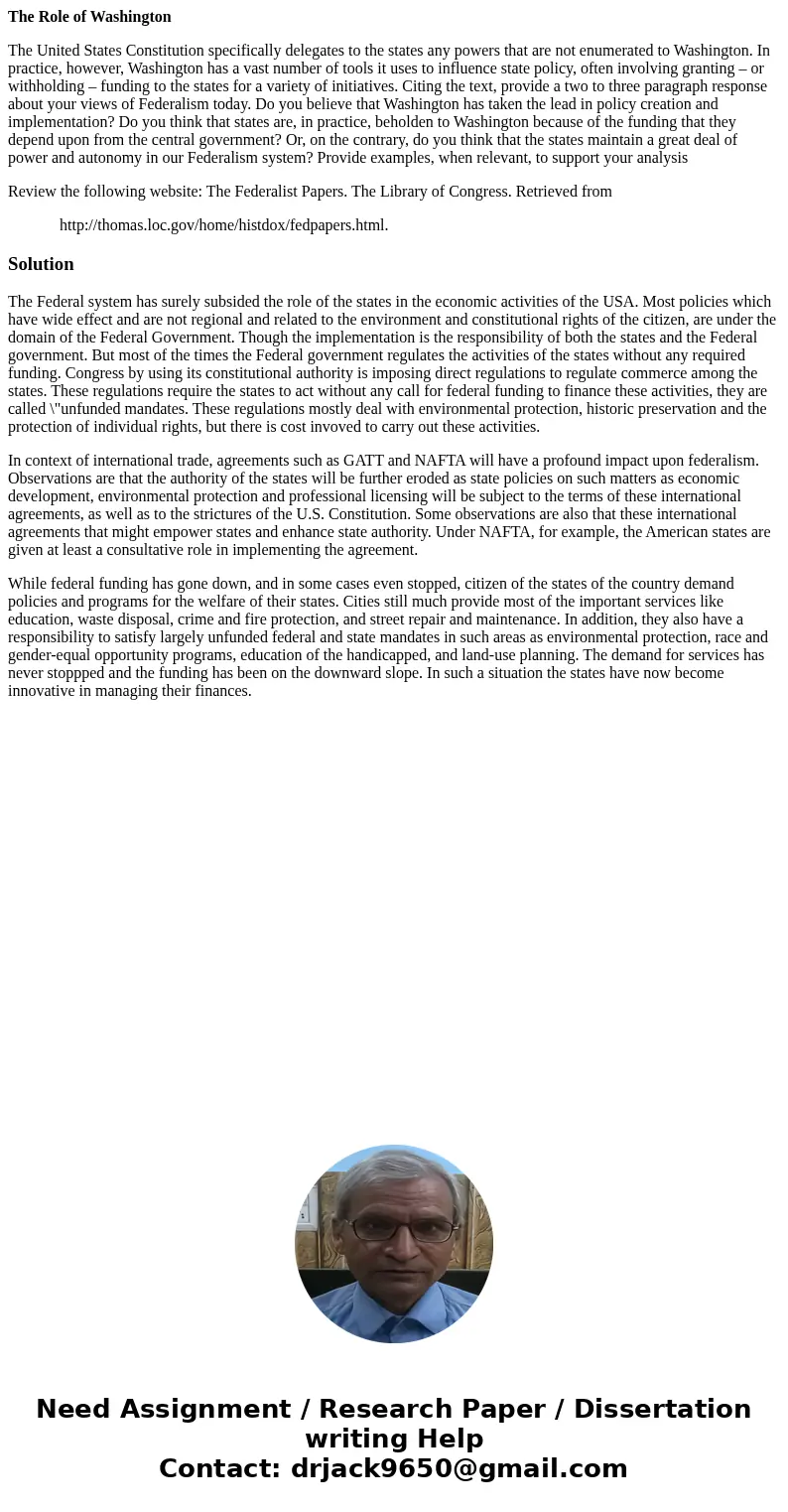The Role of Washington The United States Constitution specif
The Role of Washington
The United States Constitution specifically delegates to the states any powers that are not enumerated to Washington. In practice, however, Washington has a vast number of tools it uses to influence state policy, often involving granting – or withholding – funding to the states for a variety of initiatives. Citing the text, provide a two to three paragraph response about your views of Federalism today. Do you believe that Washington has taken the lead in policy creation and implementation? Do you think that states are, in practice, beholden to Washington because of the funding that they depend upon from the central government? Or, on the contrary, do you think that the states maintain a great deal of power and autonomy in our Federalism system? Provide examples, when relevant, to support your analysis
Review the following website: The Federalist Papers. The Library of Congress. Retrieved from
http://thomas.loc.gov/home/histdox/fedpapers.html.
Solution
The Federal system has surely subsided the role of the states in the economic activities of the USA. Most policies which have wide effect and are not regional and related to the environment and constitutional rights of the citizen, are under the domain of the Federal Government. Though the implementation is the responsibility of both the states and the Federal government. But most of the times the Federal government regulates the activities of the states without any required funding. Congress by using its constitutional authority is imposing direct regulations to regulate commerce among the states. These regulations require the states to act without any call for federal funding to finance these activities, they are called \"unfunded mandates. These regulations mostly deal with environmental protection, historic preservation and the protection of individual rights, but there is cost invoved to carry out these activities.
In context of international trade, agreements such as GATT and NAFTA will have a profound impact upon federalism. Observations are that the authority of the states will be further eroded as state policies on such matters as economic development, environmental protection and professional licensing will be subject to the terms of these international agreements, as well as to the strictures of the U.S. Constitution. Some observations are also that these international agreements that might empower states and enhance state authority. Under NAFTA, for example, the American states are given at least a consultative role in implementing the agreement.
While federal funding has gone down, and in some cases even stopped, citizen of the states of the country demand policies and programs for the welfare of their states. Cities still much provide most of the important services like education, waste disposal, crime and fire protection, and street repair and maintenance. In addition, they also have a responsibility to satisfy largely unfunded federal and state mandates in such areas as environmental protection, race and gender-equal opportunity programs, education of the handicapped, and land-use planning. The demand for services has never stoppped and the funding has been on the downward slope. In such a situation the states have now become innovative in managing their finances.

 Homework Sourse
Homework Sourse